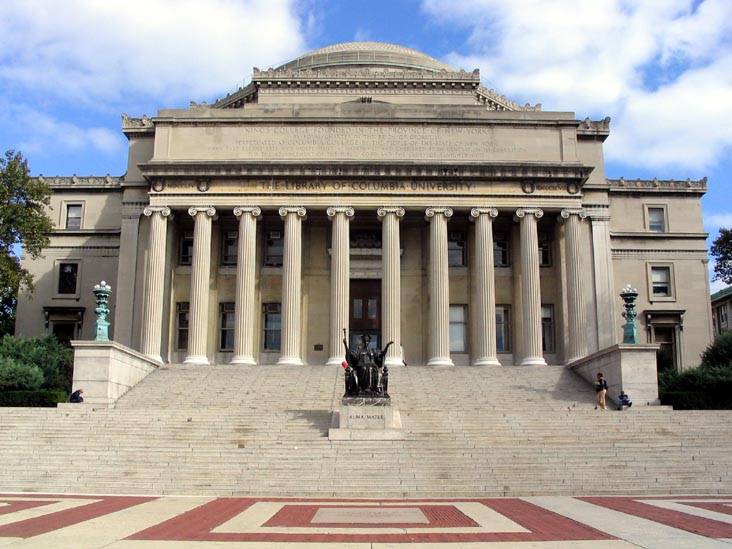Education
Antisemitism and the First Amendment

Across the nation, college students are taking up the cause of Israel and Palestine through protests. Beyond those engaged in honest debate over the Israel-Palestine conflict are hate-mongers: people who use this as an opportunity to spread antisemitism. My client, Accuracy in Media, has been busy exploring and documenting these issues—not without a host of criticism thrown its way.
How Accuracy in Media sniffs out antisemitism
Recently, some elite college students have labeled Hamas “liberation fighters” and others imagine Israel to be a “settler-colonial oppressor.” Hard to imagine: the same Hamas that massacred babies and children is being compared to the likes of General Eisenhower. As Ezekiel Emanuel noted in the New York Times, some American colleges have failed to give students the “ethical foundation and moral compass to recognize the basics of humanity.” In such a moral vacuum, antisemitism is bound to proliferate.
Throughout American history, certain justice-seekers have stepped forward to expose prejudices and call attention to public wrongs using unorthodox techniques. In 1966, the NAACP of Mississippi moved forward to address racial inequity by proposing a set of demands and then later protesting and boycotting when they were denied. This eventually led to NAACP v. Claiborne Hardware Co. before the Supreme Court—a significant First Amendment victory upholding the right of peaceful boycotting. And it was no less than the liberal lion, Justice Brandeis, who commented that publicity is “justly commended as a remedy for social and industrial diseases. Sunlight is said to be the best of disinfectants; electric light the most efficient policeman.” Today, it is Accuracy in Media shining that righteous light of publicity on society’s deep-seated prejudices.
Unorthodox methods
Recently, some have levied criticism against Accuracy in Media’s unorthodox efforts to expose ignorance and hate on America’s elite campuses. Through its investigative journalism program, Accuracy in Media has scoured college protests about the Israel-Palestine conflict. It has done the hard work to dig down and find the most hateful comments publicly issued by students and staff. It has also relied on very public proclamations issued by students in the plain light of day. And it has then taken a most necessary step—bringing public attention to those spreading hateful commentary. Some ask that Accuracy in Media be bashful about its findings about antisemitism. This would only be a disservice to tried-and-true journalism.
Others have inaccurately called Accuracy in Media’s reporting “doxing”—that is, “publishing private or identifying information about a particular individual on the internet […] with malicious intent.” Some think of doxing as publishing already-available public information. But Accuracy in Media never does so with any intent to harm a person it reports about. Rather, it publishes to bring attention to statements subjects have made in public forums.
Honest news-gathering v. attempts at suppression
Accuracy in Media often uses inexpensive mobile, digital billboards to bring attention to individuals it believes harbor dangerous antisemitic opinions. It also uses domain names to do the same. It does so using the same publicly available information anyone else can access. This just follows Justice Brandeis’ suggestion that publicity is the most effective means to address public prejudices. In a free society, if you elect to support hateful or ignorant positions you should also expect return commentary and attention. As First Amendment scholars are prone to comment, the answer to ignorant, hateful speech is more speech—of the educational, enlightened variety.
Accuracy in Media takes a hard stance against real doxing or abusing the rights of any speaker. Indeed, the president of Accuracy in Media, Adam Guillette, has himself been the subject of real swatting and doxing attacks. But in today’s upside-down world, Accuracy in Media’s honest reporting is often confused with these forms of harassment. Let it be understood: Accuracy in Media respects all honest newsgathering and reporting. For those who seek to silence those who are honestly provocative, we share another message. Accuracy in Media will continue the work Justice Brandeis so heartily recommended as the best of disinfectants: shedding publicity on the ugly undercurrent of antisemitism on America’s campuses.
This article was originally published by RealClearEducation and made available via RealClearWire.
Benjamin Barr is an attorney in Chicago, Illinois and a partner at Barr & Klein, PLLC, which specializes in First Amendment issues.
-

 Accountability4 days ago
Accountability4 days agoWaste of the Day: Principal Bought Lobster with School Funds
-

 Civilization1 day ago
Civilization1 day agoWhy Europe Shouldn’t Be Upset at Trump’s Venezuelan Actions
-

 Executive2 days ago
Executive2 days agoHow Relaxed COVID-Era Rules Fueled Minnesota’s Biggest Scam
-

 Constitution3 days ago
Constitution3 days agoTrump, Canada, and the Constitutional Problem Beneath the Bridge
-

 Christianity Today1 day ago
Christianity Today1 day agoSurprising Revival: Gen Z Men & Highly Educated Lead Return to Religion
-

 Civilization2 days ago
Civilization2 days agoThe End of Purple States and Competitive Districts
-

 Executive2 days ago
Executive2 days agoWaste of the Day: Can You Hear Me Now?
-

 Civilization5 days ago
Civilization5 days agoThe Conundrum of President Donald J. Trump












